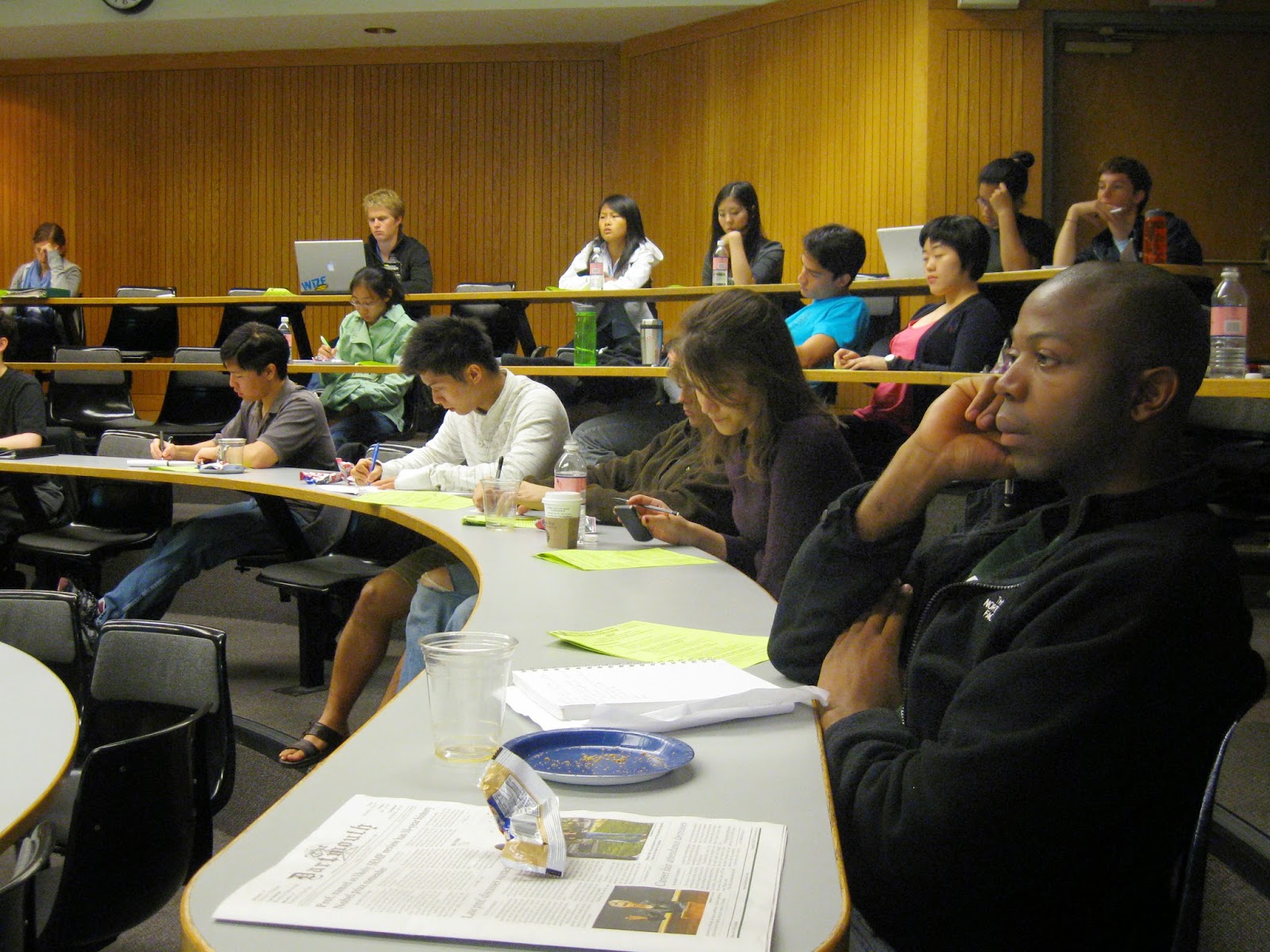- Public Policy
- Leadership
- Funding
- News & Events
- About the Center
Back to Top Nav
Back to Top Nav
Back to Top Nav
Back to Top Nav
This ongoing series explores sessions of the Management and Leadership Development Program (MLDP) through participant narratives. MLDP is a one-term program designed to develop citizen leaders among sophomores, juniors, and seniors at Dartmouth College. Led by expert guest speakers each week, sessions employ experiential teaching techniques to engage students through hands-on learning of core management and leadership skills.
 |
| MLDP participants listening attentively to Liz Agosto
|
During the fifth spring-term essential session of MLDP, Liz Agosto '01 engaged students into assessing their own forms of critical thinking. First, Agosto dispelled any myths as to what true critical thinking is. "Critical thinking isn't just thinking a lot," she said. Instead, critical thinking is, according to Agosto, examining an issue from many different perspectives and then making an informed decision based on evidence. Being a critical thinker involves curiosity and a healthy dose of skepticism. Agosto encouraged students to examine their own sets of beliefs, as judgments and biases often affect the types of decisions that people make.
There are eight elements of critical thinking that can help leaders be more intentional in their decisions, Agosto said. First, students must establish some sort of purpose. Clearly articulated goals are important because they will prevent members of a group or organization from getting too sidetracked. The second element of critical thinking is stating the question, while the third is gathering as much information about the issue as possible. Then students should assess their own assumptions and clarify their concepts. They are encouraged to understand their own point of view. Finally, critical thinkers should be able to think through all the implications, knowing that their decision is not just about immediate action, but anticipating other consequences.
Agosto analyzed these eight elements through the personal stories of students, often citing the work of campus organizations such as COSO and Programming Board to draw relevant parallels. Agosto left students with two tools -- mind-mapping and SWOC -- for how to think about their problems. While mind-mapping encourages leaders to think nonlinearly, SWOC stands for "strengths, weaknesses, opportunities, challenges," and helps students get a grasp of their organizational makeup and members' passions.
"Critical thinkers are those who can handle uncertainty," Agosto said. "Changes are happening every single day in technology. How do we deal with those and adjust what we’re doing on order to utilize those changes? We need to be able to think on our feet and react to these changes."